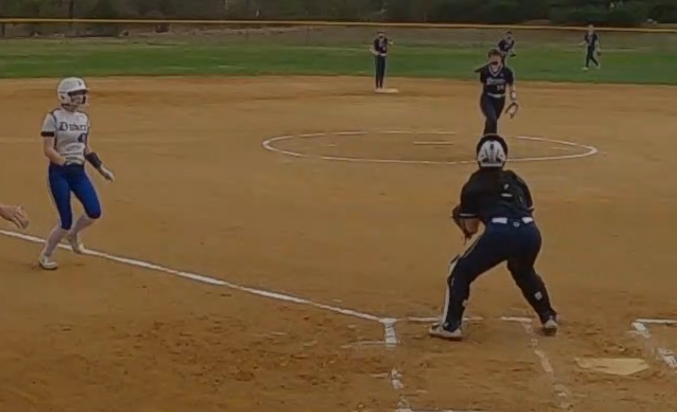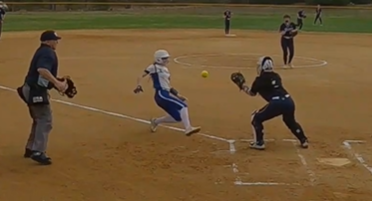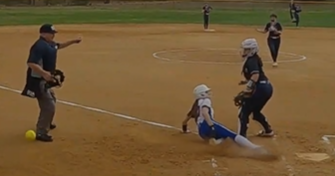Thank you for your post! If I paraphrase what I've learned, there are two primary components to calling obstruction in this situation:I agree with this. I do not have obstruction in the video. The runner never changed her "pattern of play." She ran straight to home and slid as she normally would have. At the point that it matters, the catcher has the ball. Now, if she she had veered one way or the other before her slide (and before the catcher had the ball), now we have obstruction.
So why would we have it in NCAA? NCAA expressly states the fielder cannot block access to the base without the ball. She cannot be set up between the runner and the base without the ball. Before the catcher had the ball, she was blocking access.
You would think it would all be the same ... but it's not.
I would say this call would go either way half the time and the other way the other half of the time. I'll even admit I may have called it in the moment because the situation changes so quickly. (I would have been wrong.)
1) If the catcher is set up in the base path without the ball and the runner deviates from her natural running path then that is obstruction.
2) If the runner does not deviate from her natural running path and the catcher receives the ball prior to contact with the runner then there is no obstruction.
Do I have this correct?
The reason I bring this up is because I was not aware of component #1 and component #2 seems to get lost in many discussions. My observation is many people claim obstruction should be called just because there is contact at the plate even though the runner doesn't deviate and the catcher clearly receives the ball prior to contact.
Don't get me wrong... I'm not advocating contact at the plate, I'm just trying to get a clear understanding of how this situation should be called.
Thanks again for your post!








